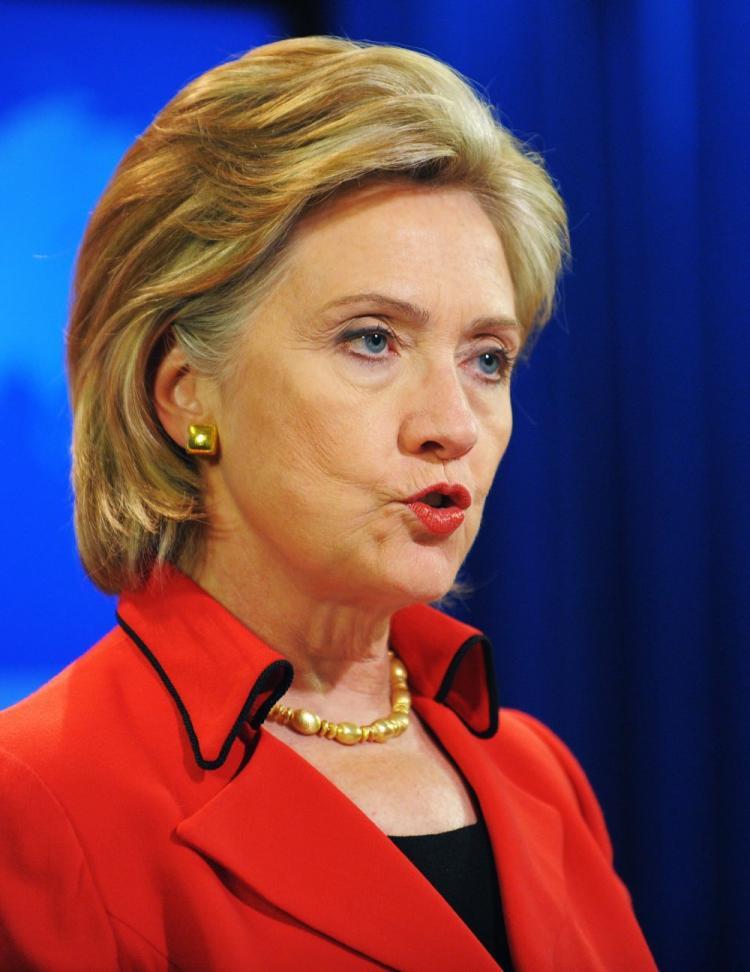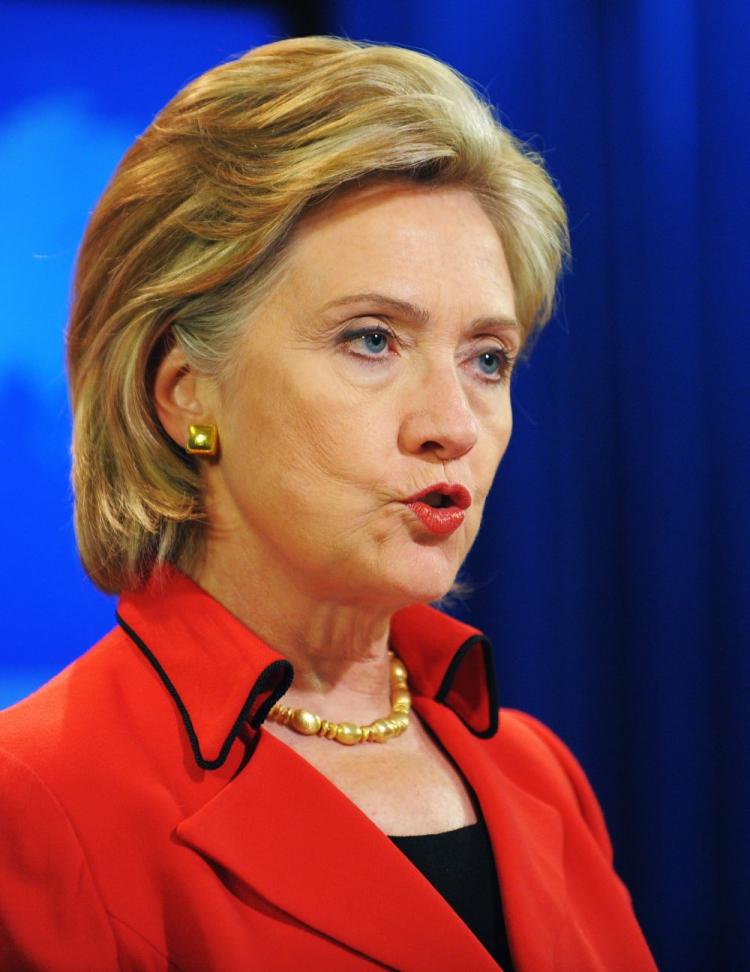Eight Countries Highlighted in U.S. Report on Religious Freedom
The State Department brought out its 2009 International Religious Freedom report on Oct. 26.

U.S. Secretary of State Hillary Clinton speaks during a special press briefing on the Release of the 2009 Annual Report on International Religious Freedom at the State Department in Washington on Oct. 26. Jewel Samad/AFP/Getty Images
|Updated:






